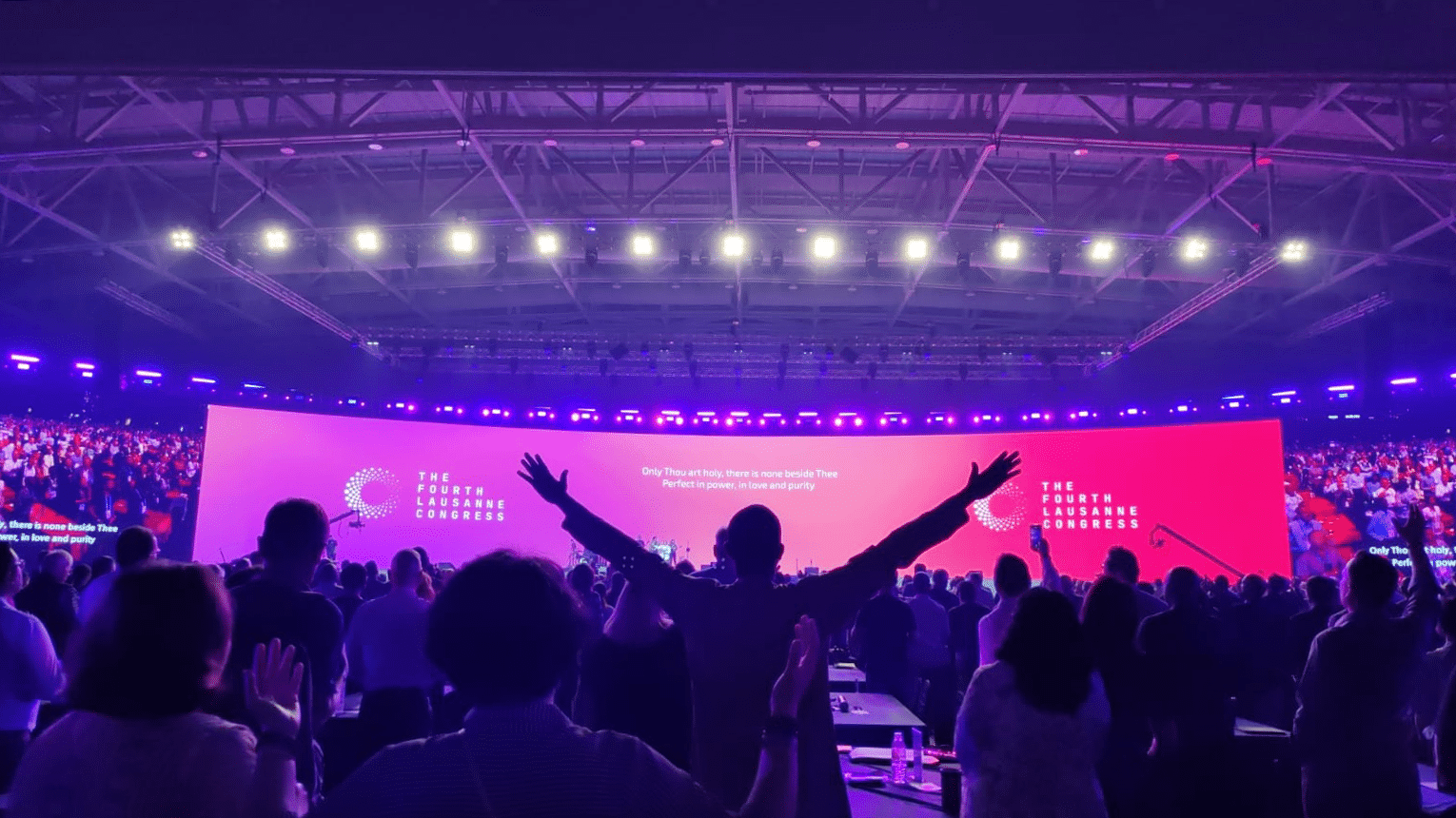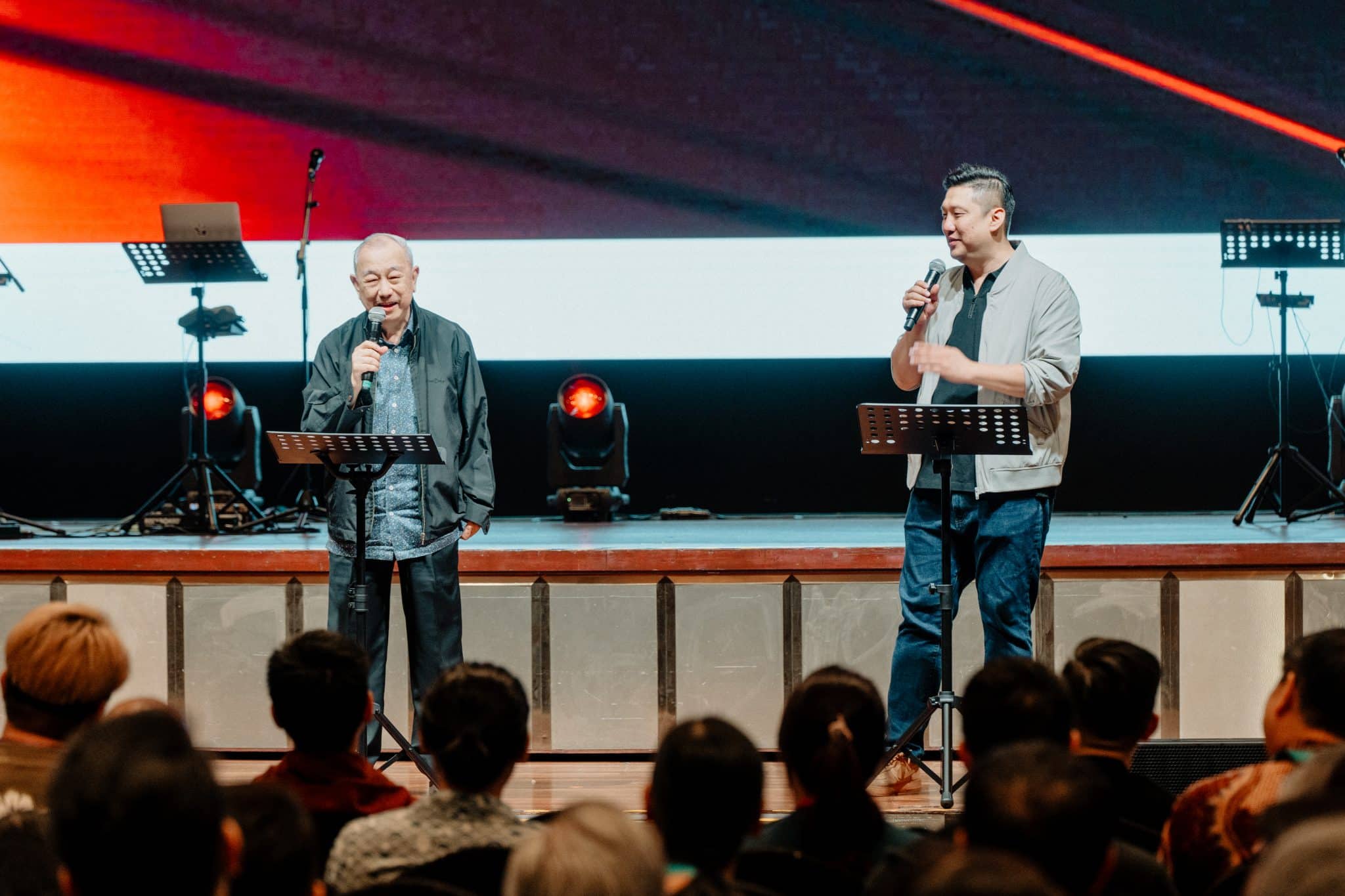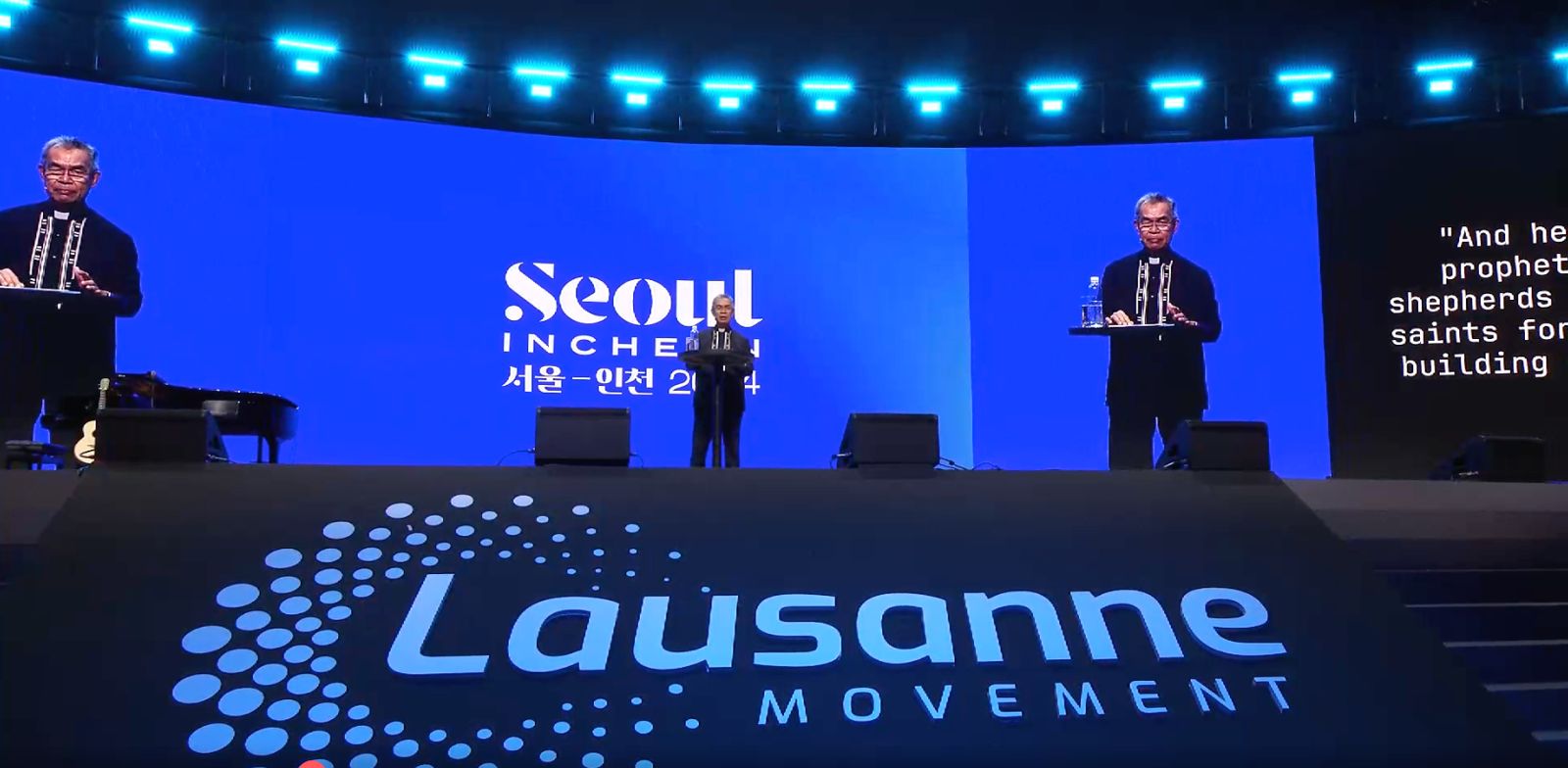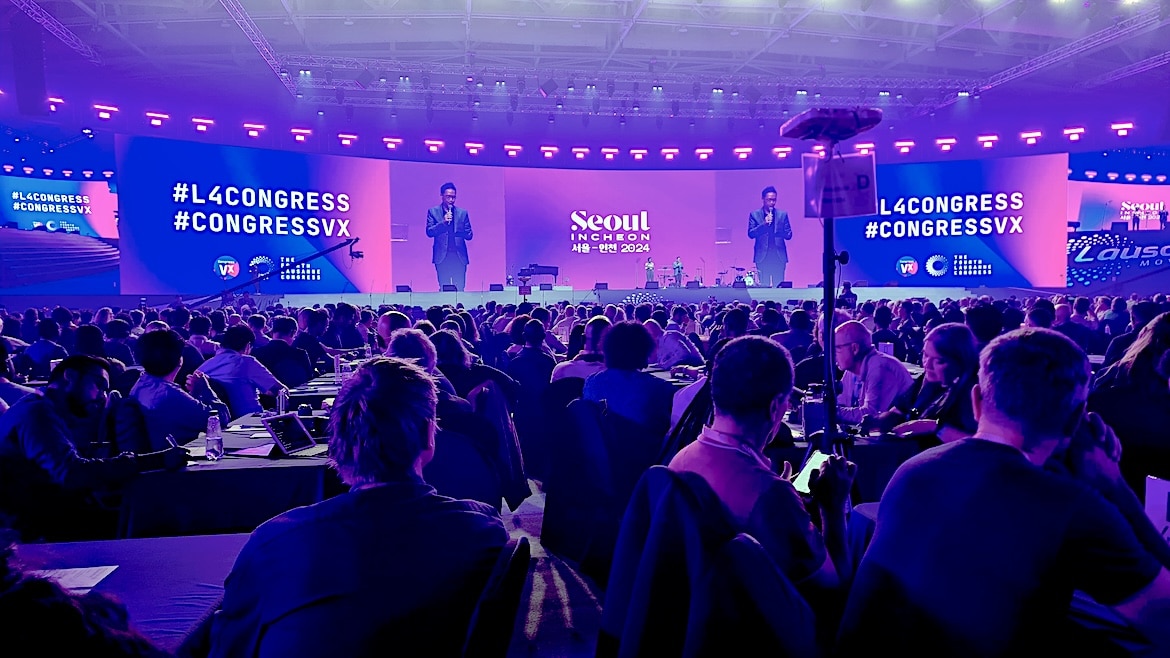What can the Singapore Church learn from a suffering global Church?: A Lausanne 2024 reflection
Timothy Seow // October 14, 2024, 2:52 pm

"Do we in Singapore really listen to the global Church, especially the one in suffering?" asks Timothy Seow after hearing testimonies of the suffering Church around the world. Photo by Timothy Seow.
From September 22 to 28 this year, I joined more than 5,000 other delegates from over 200 countries at the Lausanne Congress in Seoul, South Korea.
It was a glorious week of sharing, witnessing and contributing to the missional movements of the evangelical church around the world.
As we sung songs of worship, the symphony of the global Church was a glimpse of the great multitude “from every nation, from all tribes and peoples and languages, standing before the throne and before the Lamb” of Revelation 7:9.
Beyond the beautiful gathering, there were also numerous personal testimonies of persecution and suffering in many places around the world.
Some testimonies were of great victory – like an Iranian who was imprisoned in solitary confinement and now looks back at it with a cheeky smile.
Many other testimonies, however, stopped short of proclaiming victory. One video was of a Nigerian lady, weeping and pleading for the world to know the plight of women kidnapped by the terrorist group Boko Haram.
Weeping with the suffering Church
Growing up in the Church in Singapore, I had heard stories time and again of imprisonment and pains suffered for the sake of the gospel. However, these were often reflected on briefly before someone mentions, “We’re so blessed in Singapore”, and then life moves on.
The Lausanne gathering rendered the stories of suffering as real, lived experiences of people who live dedicated to the gospel of Jesus. Seeing this raises the question: Do we in Singapore really listen to the global Church, especially the one in suffering?
Do we love God’s people enough to weep with those who weep?
The people of Latin America were oppressed under colonial rule for over 500 years and continue to suffer neo-colonialist oppressions today.
Christians of the nations in Sub-Saharan Africa suffer violent murders, rapes and abductions from religious extremists.
Every day, faithful believers in Southeast Asia face family disownment and physical abuse for their confessions of Jesus as God.
These are but a few of the many suffering voices in the global Church today.
How much has the Church in Singapore listened to these voices?
We’ve heard the bright hope-filled stories of the gospel transforming lives, but what of stories of war, death, oppression, hunger and the tears of so many more who are suffering?
These are not just stories; no mere distant tales that tell of heroism in the face of injustice to uplift our spirits. The lives of our suffering brothers and sisters cannot be reduced to a 30-minute sermon on how we are privileged and blessed in our security and wealth. No, it cannot even be reduced to a reflective evening on how we need to pray for the global Church!
Who will listen? Who will lament and mourn? Who will speak and act?
Our sorrow is felt for the ones we love – do we love God’s people enough to weep with those who weep?
Be transformed by others’ pain
Perhaps our notions of “gospel-centred” causes us to over-spiritualise, and forget the call to “work out your salvation” (Philippians 2:12) and to keep our faith alive with deeds (James 2:14-16).
The Church by necessity has to carry out missions not in mere proclamation of the Word (as important as it is) but in humble servitude and in a manner that is incarnational. We must walk as Jesus walked and live as our Lord lived.
Hope for eternity does not mean we skim over the tragedy of the present and ignore the real suffering and pain in the Church today.
To understand how Jesus walked, we must begin with the very setting in which He walked. In his book Christ Outside the Gate, the evangelical Latin American theologian Orlando Costas commented:
“He was a Jew, the son of a modest family, who grew up in an insignificant town in the province farthest from the capital and the most culturally backward. He spoke with a Galilean accent, had a limited formal education, and was a carpenter by trade. He was aware that he belonged to a ‘unique people, although one humiliated for centuries by foreigners’.”
He continued: “It is this poor, humble, enigmatic, lonely Jewish preacher who fearlessly defended the cause of the hurt of his society whom the Christian faith confesses as the Son of God.”
Can we see just how insignificant Jesus the Christ made Himself to be? The humiliation of Jesus began not on the cross, but in His very birth. When Jesus was raised, the poor, the weak and the marginalised were lifted up with Him.
There is a special sense in which those suffering today gain access to the heart of God – to feel his grief and shame; to feel his pain and sorrow.
The Lord came to heal the brokenhearted and honour the ones who are shamed. It is only logical that it is these people who understand the depth of the love of God in a way that others may not.
Our tears and prayers must not remain within the walls of a quiet prayer hall. We must be transformed by the pain of the other, and living in a way that is self-conscious of our place in our suffering world.
How can this be achieved?
Lament
Firstly, the church of Singapore must learn to lament.
Despite the presence of 65 psalms of lamentations, numerous songs and an entire book aptly called “Lamentations”, our modern sensibilities tend towards regaining sterility of faith when challenged with the filthy and disordered world and, thus, solutioning.
Instead, we must learn to stop. We must dwell in the presence of the Lord even in the miry pit of despair and cry out to Him.
Surely, there is hope in the resurrection; and the honour of believers in the long-awaited feast in heaven with our King is undeniable. But hope for eternity does not mean we skim over the tragedy of the present and ignore the real suffering and real pain in the Church today.
We neither sentimentalise hope nor romanticise pain. We simply listen, weep and pray.
Advocate and act
Next, we must advocate for justice for the oppressed peoples and creation wherever we are, both privately and publicly. Advocacy is not a dirty word, even for us that lie along the conservative end of the spectrum.
We learn of suffering to ask not just, “How can I preach the gospel to the sufferers?” but also, “How can I lift my sister out of her suffering?”
Standing up for brothers and sisters and the abused creation need not mean militancy. Awareness and standing on the side of the oppressed must be done with gentle firmness. It may not bring immediate resolution to the problem in itself, but it contributes to the process. We must lend a prophetic voice to the voiceless where we can.
Advocacy is action. However, where we can act more, we must. Acting for justice for the dispossessed, oppressed and poor is missional activity in itself. We must certainly proclaim, but our proclamation cannot come without obedient action to bring about justice and healing here and now.
This means that we learn of suffering to ask not just, “How can I preach the gospel to the sufferers?” but also, “How can I lift my sister out of her suffering?”
Redemption is for the whole of creation, both the physical and the spiritual, and we must not relegate it to only one without the other.
Be sensitive to others’ voices
Thirdly, we must be sensitive to the voices that are already speaking all around the world. Our God is shrouded in mystery and the enigma of His being, which is love, cannot be comprehended by any one people.
Believers from every nation, every tongue, every health status and every economic level must be listened to carefully, such that we would learn and be challenged to live out our own faith in ways of greater obedience.
We must also listen to the many whose faith are expressed differently than our own, but only because of contexts of culture, language, philosophies and the like. When we listen with humble hearts, we will find ourselves enriched by the diverse family of God.
We must dwell in the presence of the Lord even in the miry pit of despair and cry out to Him.
The Church in Singapore cannot sit silently amidst a suffering world – but it has not been silent!
There already are numerous organisations and individuals working missionally for justice. Organisations like HealthServe, St Andrew’s Autism Centre, World Vision Singapore, Koinonia Inclusion Network (KIN), Micah Singapore and many other ministries have already paved the path for justice in local and overseas settings, and are available platforms to participate in God’s mission.
We cannot listen and remain untransformed by the Holy Spirit’s working in the world, nor can we listen without participative action towards whole-world redemption.
May God guide us toward a deeper loving fellowship with our global brothers and sisters.
RELATED STORIES:
7 key paths forward for the global Church: 4th Lausanne Congress’ Seoul Statement
Christ-centred marriages, parenting and singlehood are our Gospel witness: 4th Lausanne Congress
We are an independent, non-profit organisation that relies on the generosity of our readers, such as yourself, to continue serving the kingdom. Every dollar donated goes directly back into our editorial coverage.
Would you consider partnering with us in our kingdom work by supporting us financially, either as a one-off donation, or a recurring pledge?
Support Salt&Light


